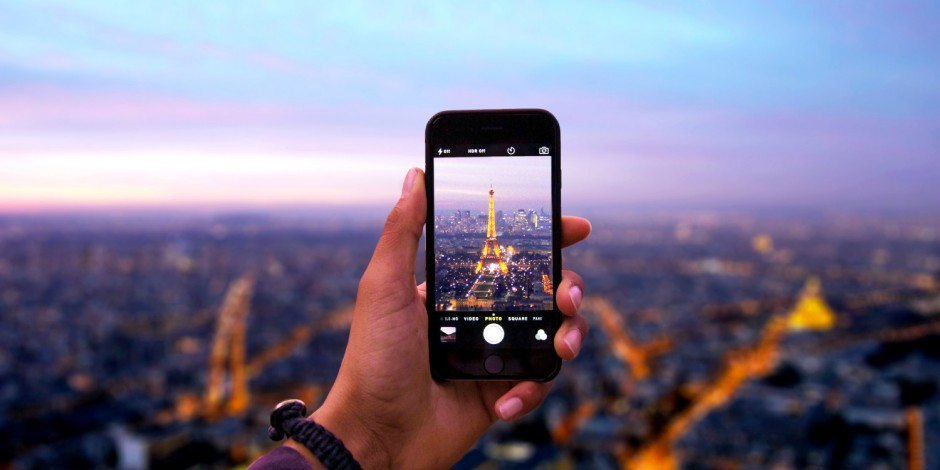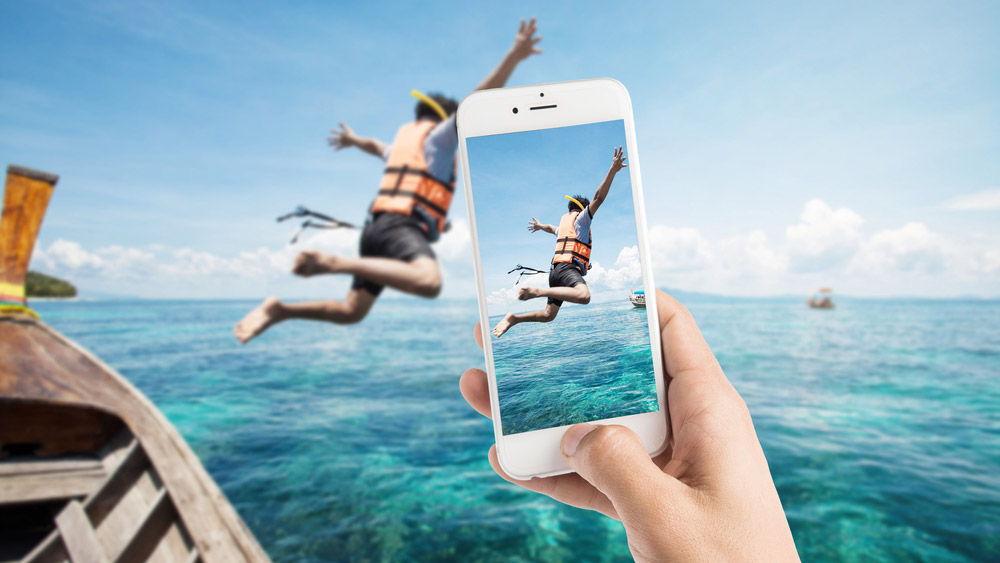The Future of The Tourism and Activities Sector
Angela Hassassian
Jun 19, 2018 - 8 min read

At 360Stories, we feel that understanding travelers is vital for deciding the direction of our company. We strive to not only follow trends but to learn what motivates and inspires those who travel, then transform the way they experience a destination.
We feel that following and understanding trends is vital for deciding the direction to take any organization or company. However, we find that it is equally if not more important to strive to set them. Anyone with an affinity for innovative technologies can understand how radical ideas were considered risky, questionable and sometimes even controversial novelties when they were first being conceived, only to become a part of our mainstream and daily lives now.
It’s a combination of understanding the current trends, having a bit of foresight, presenting new solutions and appealing to early adopters who share a similar vision. While evolution is of course, natural, sometimes it’s worth doing more than building off the innovations of the past and coming up with something completely new and different. It’s one thing to let consumer behaviors dictate your business approach, it’s another thing entirely for your business to create new behaviors among consumers. Of course, one needs to understand the rules of the game before they begin to break them.
So what are the current points to focus on when it comes to the travel industry? What are the implications we can draw from the results of the newest studies? Well, first of all, we need to shift our focus to Millennials (aged 18-39). This may not sound like news, but this age group is traveling more than any other age group, and what’s more, is that they are quick to embrace new technology. They are the driving force behind disruptive behavior! What do millennials want? Well, the good news is, they want to travel! In fact, 47% of people ages 18-34 would rather travel than buy a home (Realty Mogul) and 78% of Millennials would rather buy a desirable event than a desirable purchase (Eventbrite).
Focus Point #1: Shift From Material to Experiences
Millennials value experiences much more than material things. This means that activities and experiences while traveling matter more than the amenities of the place they are staying. According to research conducted by Skift, “67 percent of affluent travelers would rather spend their money on activities than on a nicer hotel, up eight percentage points from last year.” People are more apt to travel to experience something new than they are to simply relax.
Source: Skift Research U.S. Affluent Traveler Trends 2018
This means that travel should be more focused on memorable tours, visits to museums and historical sites, and opportunities to learn about local art and culture because according to Expedia, 73% of millennials say that’s what they want! More than half of travelers want to explore a city’s history while on vacation (TripAdvisor), while 78% want to learn something new while traveling (Travel Agent Central).
Source: iSeatz, Inc. via Travel Agent Central
Implications:
This means that it’s not just about visiting landmarks, it’s about learning the stories behind them. Travelers are going beyond the concept of traditional sightseeing and emphasizing on the experience and what they can take away from it. Beyond entertainment, travel is mostly viewed as a form of personal enlightenment and enrichment. Those in the travel industry would do well to highlight that aspect in their products, services and marketing.
Focus Point #2: Tapping In On Micro-Moments
People like flexibility when traveling. Period. Travelers know that there are many factors involved in setting up an itinerary that are simply out of their hands. A change in weather, a delay or cancellation, energy levels, moods, anything can cause a shift in a travel itinerary. As such, people are traveling smarter and more flexibly. They much rather prefer booking tours once they arrived rather than months in advance.
The research phase, however, may be done well ahead of time. So while a person may not know if they want to book a ticket to visit the Acropolis of Athens on a Wednesday, Thursday or Friday months in advance, they certainly do know that they want to see it at some point during their trip. In the past, we have mentioned the importance of understanding micro-moments. A micro-moment, as defined by Google, occurs when people reflexively turn to a device (namely a smartphone) to act on a need to learn something, do something, discover something, watch something, or buy something. They are intent-rich moments when decisions are made and preferences shaped.
While we already know that 66% of millennials book their trip with a smartphone (Curalate), and while certain decisions are being made during the research phase when travelers are at home, it’s interesting to find that 81% of travelers participate in a bookable in-destination activity during their last trip. The final and possibly most vital micro-moment takes place when the traveler is at their destination!
Among the most popular activities booked on the spot are the kinds that we mentioned in our first point. Day trips, excursions and sightseeing tours (42%), museums, galleries or cultural attractions (30%) and outdoor activities (28%).
Source: iSeatz, Inc. via Travel Agent Central
Implications:
The takeaway is that some of the most vital micro-moments occur when travelers are at their destination. The key is to cater to the consumers need for flexibility and spontaneity when they are abroad. This is something that 360 Stories strives for, by giving the opportunity to consumers for easy and impromptu booking.
Focus Point #3: Filling The Supplier Gap
This is where the major conflict of supply and demand occurs. We’ve established that travelers value experiences, we’ve also established that they want to be able to book these experiences flexibly and on-location. One of the major issues is the poor quality of digital merchandising, and online presentation of tours and activities. Photos available are uninspiring, descriptions are bland and uninformative, user reviews are scarce.
Airline websites may offer a list of things to do, but upon looking closer, consumers will be confronted with a page that looks something like this. This leaves far too much to the imagination and gives no indication of what to expect.
This is a grave problem for the industry, and one which is not based on simple assumptions as 20% of millennials report being disappointed by landmark sites after seeing images that weren’t realistic of the experience (Expedia). It, therefore, comes as no surprise that 43% of consumers ages 18-54 have said they want more 360 videos (eMarketer).
Not only do millennials NOT want stock photos, but they want authentic and raw imagery (Travel Agent Central) in order to have a realistic understanding of what to expect on their trip! Furthermore, they want to be able to do their research online. By driving the growth of industries that support a passive, self-directed purchase experience, from restaurant delivery apps (Hospitality Tech) to ride sharing (Digital Trends), Millennials have shown they want a more streamlined, research-driven and independent consumer experience with minimal employee interaction.
Implications:
Suppliers in the travel industry ought to provide more detailed, authentic, and raw information on bookable experiences. They should be readily available to book online, and they should be accurate. Travelers are waiting for the day when they will no longer have to wait in long lines to get a ticket to enter a museum or go to an attraction.
After taking the current climate and consumer demands into consideration, 360Stories feels that it is also the perfect opportunity to capitalize on the lessons to be learned from these implications and bring something to the table which will not only fulfill consumer demands but also sculpt consumer behavior in the future. We are a new platform which provides not only engaging and high quality 360-degree footage of different travel destinations, but we also offer the opportunity for travelers to book one-day tours to a variety of attractions online. We offer new ways to have experiences both virtually and offline, flexibly, and with all the accuracy you could only expect from 360 footage. We are here to help you experience planning, booking and traveling differently!


